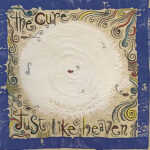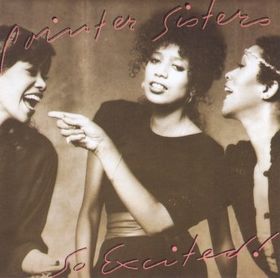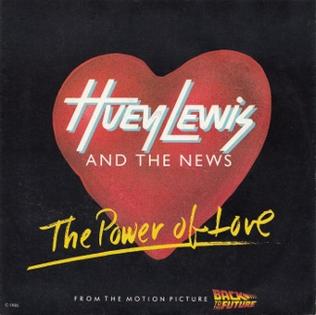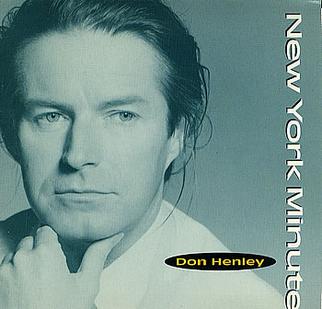 The Cure’s “Just Like Heaven” stands as one of the most enduring and beloved songs of the 1980s, capturing a perfect blend of euphoric romance, shimmering melodies, and the bittersweet emotions that define much of the band’s oeuvre. Released in 1987 as the lead single from their critically acclaimed album Kiss Me, Kiss Me, Kiss Me, “Just Like Heaven” quickly became a landmark track for The Cure, propelling them into wider mainstream recognition while retaining their distinctive artistic identity. The song encapsulates the band’s signature fusion of gothic moodiness with bright, pop-inflected soundscapes, a juxtaposition that has fascinated listeners for decades.
The Cure’s “Just Like Heaven” stands as one of the most enduring and beloved songs of the 1980s, capturing a perfect blend of euphoric romance, shimmering melodies, and the bittersweet emotions that define much of the band’s oeuvre. Released in 1987 as the lead single from their critically acclaimed album Kiss Me, Kiss Me, Kiss Me, “Just Like Heaven” quickly became a landmark track for The Cure, propelling them into wider mainstream recognition while retaining their distinctive artistic identity. The song encapsulates the band’s signature fusion of gothic moodiness with bright, pop-inflected soundscapes, a juxtaposition that has fascinated listeners for decades.
The creative vision behind “Just Like Heaven” is quintessential Robert Smith — the enigmatic frontman and principal songwriter of The Cure — whose poetic sensibility and unique vocal delivery have shaped the band’s sound from the beginning. Smith’s ability to combine introspective, often haunting lyrics with infectious melodies is on full display here, making the song both deeply emotional and irresistibly catchy. It’s a track that balances the tension between joy and melancholy, reflecting the complexities of love and memory.
Musically, “Just Like Heaven” is a masterclass in melodic construction and sonic texture. The song opens with an iconic, arpeggiated guitar riff that immediately establishes a dreamy, hypnotic atmosphere. The guitars shimmer with a bright, chiming tone, layered over a buoyant rhythm section that drives the track forward with a lively yet restrained energy. This combination creates a sense of floating or flying, perfectly complementing the lyrical theme of blissful escape.
The production, handled by David M. Allen and Robert Smith, maintains a clear yet lush sound, allowing each instrument to breathe while creating a cohesive, immersive sonic environment. The drums are crisp and punchy without overpowering, the bass is melodic and supportive, and the keyboards add subtle textures that enhance the dreamlike quality of the track. Together, these elements craft a sound that feels both intimate and expansive.
Robert Smith’s vocal performance is central to the song’s emotional impact. His voice is tender and vulnerable, imbued with a sense of longing that pulls the listener into the narrative. The phrasing is expressive yet controlled, capturing the exhilaration and tenderness of the moment described in the lyrics. The harmonies and backing vocals add layers of warmth and depth, enriching the song’s lush soundscape.
Lyrically, “Just Like Heaven” tells a story of romantic euphoria that feels almost surreal — a moment of perfect happiness so intense that it seems like a vision or a dream. The imagery Smith employs is vivid and poetic, painting a scene filled with sensory details and emotional resonance. Lines like “Show me, show me, show me how you do that trick / The one that makes me scream,” evoke the thrill and intimacy of connection, while the repeated phrase “Just like heaven” captures the transcendent feeling of love’s peak.
The song’s narrative voice is reflective and nostalgic, as though recounting a cherished memory. This wistfulness adds a bittersweet edge, suggesting that the moment of bliss is fleeting or perhaps unattainable outside of memory. This tension between joy and sadness is a hallmark of The Cure’s songwriting and contributes to the track’s enduring emotional complexity.
“Just Like Heaven” was released at a pivotal moment in The Cure’s career. Coming off the heels of earlier successes like The Head on the Door, the band was expanding their sound and audience. The song’s accessibility and melodic appeal made it a natural crossover hit, attracting listeners who might not have been familiar with the band’s darker, more gothic material. It peaked at number 40 on the US Billboard Hot 100 and became one of their highest-charting singles in the UK as well, signaling The Cure’s growing international prominence.
The music video for “Just Like Heaven,” directed by Tim Pope — a longtime collaborator of the band — further enhanced the song’s mystique and appeal. The visuals blend whimsy and gothic elements, featuring Robert Smith and the band in ethereal, fantastical settings that echo the song’s themes of dreamlike romance and otherworldliness. The video’s artistic style and imagery helped cement the song’s iconic status and remain a touchstone for fans and critics alike.
Beyond its immediate success, “Just Like Heaven” has maintained a powerful cultural presence. It is widely regarded as one of The Cure’s signature songs and has been covered and referenced by countless artists across genres. Its influence is evident in the work of indie pop, alternative rock, and dream-pop musicians who cite the band’s ability to meld darkness and light as a profound inspiration.
The song’s appeal lies in its universal themes of love, memory, and the longing for moments of pure happiness. These themes resonate across generations, making “Just Like Heaven” not only a defining track of the 1980s but also a timeless piece of music that continues to touch hearts. Its blend of emotional depth and sonic brightness creates a paradoxical experience: listeners feel uplifted even as they are drawn into introspection.
Musically, the song exemplifies the jangly guitar-driven style that was influential during the late 80s alternative scene. The interplay between the lead and rhythm guitars crafts a lush melodic tapestry, supported by Simon Gallup’s fluid bass lines and Boris Williams’ dynamic drumming. This tight musicianship provides a foundation for Smith’s emotive vocals, resulting in a track that is both meticulously crafted and emotionally spontaneous.
The song’s arrangement also showcases The Cure’s growth as a band willing to experiment within the framework of pop music. The use of effects like delay and chorus on the guitars creates a shimmering sonic palette that became a hallmark of their sound. The balance between catchy hooks and atmospheric production allows the song to appeal to both casual listeners and devoted fans of the band’s more experimental work.
“Just Like Heaven” also represents a moment of creative clarity for Robert Smith, who has described the song as capturing a very special period in his life. Its origins trace back to an intensely personal experience of happiness and love, which Smith was able to translate into lyrics and music that feel authentic and relatable. This personal connection is evident in the emotional sincerity of the performance and the evocative nature of the lyrics.
The song’s enduring popularity is evident in its frequent inclusion on “best of” lists and greatest hits compilations. It consistently ranks among The Cure’s most celebrated tracks and is often cited as one of the greatest love songs of all time. Its balance of romantic yearning and sonic beauty makes it a staple at concerts and a favorite among fans old and new.
Critically, “Just Like Heaven” has been praised for its melodic ingenuity and emotional resonance. Reviews at the time of release highlighted its catchy chorus and atmospheric production, noting how it marked a shift toward a more accessible yet still artistically rich direction for The Cure. Over time, the song has garnered even greater appreciation for its nuanced layering and timeless appeal.
The song’s impact extends beyond music. It has appeared in numerous films, television shows, and commercials, often used to underscore romantic or nostalgic scenes. This widespread use has helped introduce “Just Like Heaven” to diverse audiences, reinforcing its status as a cultural touchstone. Its lyrics and melody evoke a sense of euphoria and reminiscence that fits a variety of emotional contexts.
Live performances of “Just Like Heaven” reveal the song’s vitality and versatility. The Cure often extend or modify arrangements to suit the atmosphere of a show, highlighting different instrumental parts or emphasizing the emotional intensity of the chorus. Robert Smith’s passionate delivery in concert settings keeps the song feeling fresh and immediate, a testament to its enduring relevance.
The song also captures the essence of The Cure’s broader artistic ethos — the interplay of darkness and light, despair and hope, melancholy and joy. This duality has been a defining characteristic of the band’s music and is encapsulated perfectly in “Just Like Heaven.” The song’s bright melodies contrast with the emotional depth of the lyrics, creating a rich and multifaceted listening experience.
Over the decades since its release, “Just Like Heaven” has influenced countless artists and genres. Its melodic style and emotional openness have inspired musicians from indie pop to alternative rock and beyond. The song’s success demonstrated that it is possible to create music that is both commercially successful and artistically meaningful, setting a precedent for bands seeking to balance these goals.
“Just Like Heaven” also highlights Robert Smith’s talents as a lyricist and songwriter. His ability to craft vivid imagery and emotional nuance within a concise, accessible format is on full display. The song’s memorable lines, such as “You ring my bell, you say hello, and I’m ready,” paint intimate scenes that feel personal yet universal, inviting listeners to project their own experiences onto the music.
The track’s timelessness is further ensured by its adaptability. Its themes of love, joy, and memory are evergreen, and its melody remains fresh with each new generation that discovers it. Whether heard on vinyl, CD, streaming services, or in live settings, “Just Like Heaven” continues to enchant and inspire.
In sum, The Cure’s “Just Like Heaven” stands as a shining example of how pop music can be both deeply emotional and broadly appealing. It captures a moment of perfect euphoria while acknowledging the fleeting nature of happiness, all wrapped in an irresistibly catchy and beautifully produced song. Its legacy is a testament to The Cure’s unique ability to marry darkness and light, crafting music that speaks to the complexities of the human heart. Decades after its release, “Just Like Heaven” remains a beloved anthem of joy, romance, and the bittersweet beauty of memory.


